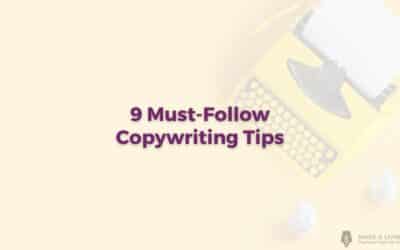
You’re an ethical writer — right?
You don’t rip off other writers, you charge fair rates, and you deliver what you promise.
Surprise: If you you’re an article writer for magazines and newspapers, there’s more — way more — to journalistic ethics that you need to know.
If you unwittingly commit an ethical faux pas, you could put your freelance writing career at risk. I committed one of these sins myself, as you’ll see below, and was banned from writing for what was a great magazine market for me.
So trust me, you want to stay out of ethical trouble. How?
Here are the top four mistakes that can brand you as an unethical writer:
1. Showing the source your goods
You interview a key source, and he asks if you can send him a copy of the article when it’s finished. Being a nice writer, you’re probably inclined to say yes.
Then, the source returns your draft with so much red ink it looks like he sacrificed a goat on it. He’s “corrected” your grammar. He’s deleted quotes from an interviewee who doesn’t agree with him. He’s even changed his own quotes, so they go from sparkling to PR-speak.
This, my friends, is an ethical problem.
Generally, sources should not be given the chance to approve or edit your story. So when a source asks to see a copy of your article when it’s done, the correct thing to say is, “Let me ask my editor what the magazine’s policy is.” Then you ask your editor.
In most cases, the editor will tell you that’s a no-no. If that happens, ask your editor how they fact-check articles, or if you can check the article yourself by calling the source and running the facts by him.
That way, you can tell the source — who is probably just nervous about being misquoted — that although the editor said you can’t share the full article, a fact checker will be calling him, or you’ll be calling yourself to go over the details.
Sometimes, the editor will give you the go-ahead to send the article — and in the case of some trade and custom publications, may even require it. Then you can send away and know that you covered your butt.
2. Double dipping
Being a smart writer, you like to get the most out of your work. So when you get an assignment to write about small business marketing for a trade magazine, the first source who comes to mind is a copywriting client of yours who happens to be — ta daa! — a marketing consultant.
You save yourself some legwork, and your copywriting client loves you even more. In fact, he even offers to pay you for getting him placed in the magazine. Everyone’s happy!
Well, except your editor, when she finds out.
Being on the payroll of both the magazine and your source is called “double dipping,” and it’s unethical. It looks like you’re not choosing the best source for your article — you’re choosing the one who pays you. It’s a conflict of interest.
As a journalist, you want to avoid even the appearance of bias. So even if your motives are pure, including a client of yours as a source is a no-go.
One other way double dipping happens: Often, writers end up chatting about their freelance writing activities to business sources they’re interviewing…and the conversation leads to the idea that the business owner would like to hire the writer to write for them.
As excited as you may be by the prospect of adding this business to your client roster, it’s not OK to go to work for a company you used as a story source — at least, not until that article has been published and is done.
3. Telling a story you love
I get a lot of writers in my e-courses who want to write about an issue that’s near and dear to their hearts. But sadly, when a writer is that close to a topic, they often can’t be objective about it, and their reporting suffers.
If you’re a staunch pro-choicer and you’re writing about an abortion issue for a general interest magazine, you may be tempted to not include an opposing viewpoint in your article. And even if you did interview one or two pro-lifers, you may not want to give them as much play in the piece.
I know, I know — you would never do that. You can write a fair and accurate article on any topic. I get that. But even so, we’re talking about the appearance of bias. Even if you wrote a balanced article on an abortion topic and it came out that you, say, run a pro-choice blog — the objectivity of the publication would be called into question.
4. Stealing from yourself
Okay, here’s the story you’ve been waiting for — the one that makes me look pretty bad.
Years ago, I read that if you want to re-sell an article you wrote, in order for the article to be considered original, it has to be 10 percent different from the old one.
I took this rule of thumb to heart. So when I sold an article on the financial benefits of being healthy to two non-competing publications — a health pub and a financial magazine — I wrote the article for the health mag first and then revised it for the financial one. It was 10 percent different, and I thought I was good to go!
Well, somehow the editor of the financial magazine — which was a GREAT client for me — found out and let me tell you, he was pissed. I never wrote for that magazine again, and I learned my lesson.
The actual rule is: If you want to write on a similar topic for two different magazines, the copy has to be completely different.
You should probably interview different sources, or at least use different quotes from the same interviews. Be sure not to reuse any of your copy — not even a sentence. Even if you think you’re in the clear, an editor using Copyscape may not think so.
Ever gotten into ethical trouble with an article? Leave a comment and tell us about it.










